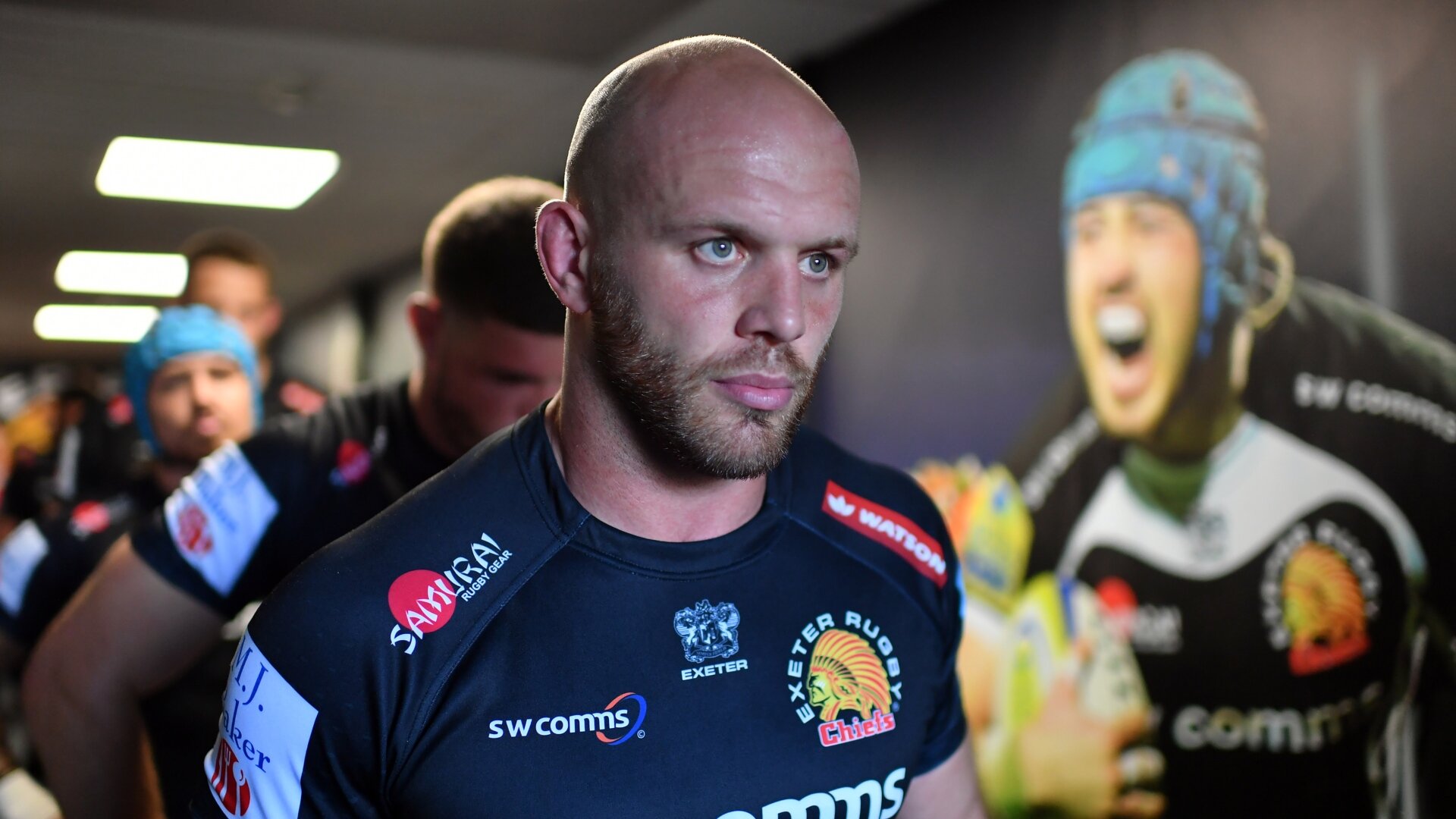'I felt like a criminal': Jack Yeandle on the disciplinary process following first red card in his lengthy Premiership career

Seasoned Exeter hooker Jack Yeandle has spoken about the impact his first-ever red card had on him and his season at the Chiefs. It was February 26 when he became the first Exeter player in four years to be given his marching orders, the forward becoming the sixth player across the Gallagher Premiership to be sent off in the space of seven days at a time when referees were heavily clamping down on any contact with the head.
A three-week ban was copped to rub salt into the wound that was losing 25-20 at Sale and at his hearing, Yeandle stated: “My action in entering the breakdown with my left arm not extended was reckless.”
Eleven weeks later, Yeandle, who made a January 2013 Premiership debut and wracked up more than 200 appearances in the tournament for Exeter, has now spoken about the ordeal of suffering a first career red, describing the subsequent disciplinary hearing as an ordeal.
“I felt like a criminal! I didn’t realise how official and how thorough it all is. It was very much a case that I sat down with a lawyer and then it all goes through the hearing and everything like that. It’s not the most fun,” quipped Yeandle, going on to explain what happened in the Exeter game at Sale and the training ground effect it has since had on him.
“It’s just making sure you are extra careful around the breakdown. Like any rule that gets highlighted for a bit, they will be extra cautious with it so things like tackle height and stuff. It has never been an issue, my tackle height. Mine was a clear-out, but if it is in the spotlight you have just got to be extra careful.
"He had only just got back fit and was looking very good and sharp…"
https://t.co/x3EUwxwKEO— RugbyPass (@RugbyPass) May 14, 2021
“Mine was just a bit sloppy and reckless in the way that I got my card. It was one of those ones where I didn’t need to hit (the ruck). I thought I best hit it just to get it out of the way and it was just a bit reckless where my arm was going. You have got to make sure your arms are always leading and your arms are wrapped. I didn’t, got myself a red card and cost us the game. It’s definitely highlighted in training.
“We had actually spoken about it in training a few weeks prior to my red card as well and it was a pretty horrible lesson I had to chew on there but it’s definitely picked up in training. We are very aware of it and when we do clear-out drills and things like that. It’s emphasised to lead with your arm and get a wrap on your arm so you are not going to get yourself on the naughty step.
“The game is so different now. Look at the game from ten years ago, it’s completely different how organised defences are. The game is constantly changing, the rules are in place and you have got to adhere to the rules. The rules change quite often, don’t they, and it is up to the players. If you are not going to adhere to the rules, you are going to get yourself carded, you are going to get yourself punished for it so you have got to be able to adapt and the good players do.”
The outcome of the three-week layoff was that it pegged Yeandle’s momentum in the season and left him struggling to pick up the thread when he returned from the suspension. “I was playing decent rugby at the point. It did knock me a bit and I didn’t come back in the best of form.
“It was probably reflected in playing quite poorly in the European games as well. I’d like to think I’m starting to get back there again now after a couple of games but it serves me right, I shouldn’t have got the red card. I could have stayed on a bit of form and played a few more games.”
Things got heated in Dublin when Henderson wanted Henshaw carded for monster tackle #Lions2021 #Lions #LEIvULS https://t.co/lGoEqh6x82
— RugbyPass (@RugbyPass) May 14, 2021





























